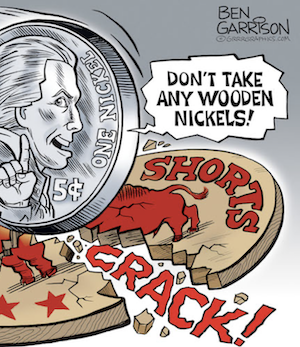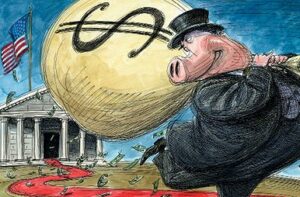
Illustration: Francis Scialabba
The Fed’s war on inflation is finally trickling down to the wider economy, and the evidence is beginning to show that many Americans are feeling the pain.
Today’s Bureau of Labor Statistics’ latest Job Openings and Labor Turnover Survey (JOLTS) report came in far cooler than expected — US job openings fell in April to the lowest level in over three years, illustrating a significant slowdown in the labor market. Available positions dropped to 8.06 million, a decrease from the 8.36 million openings in March.
Even with high inflation and rising interest rates, the labor market has remained strong over the past few years, boosting discretionary spending for consumer goods. But a second straight month of declines shows that Fed policy is finally reaching jobs.
It’s hitting consumers in their wallets as well. Real spending fell in April, with Americans spending far less on items such as cars and activities like going out to eat. The saving rate also stands at a 16-month low, as disposable income has plateaued, and people have long ago spent any Covid-era savings they had. And credit card debt is rising: Credit card balances across the country rose to $1.115 trillion last quarter, a $129 billion increase from the first quarter of 2023.
Yet at the same time that the economy is slowing, inflation has remained persistent. Even though the rate of rising prices is slowing, things are still getting more expensive. And although the fact that everyday items are more expensive is more significant for most Americans than any big picture labor statistic, the combination of a tighter labor market and higher expenses is a powerful one.
“Slower labor market momentum will continue to limit income growth and push more families to exercise high spending restraint amid reduced savings buffers and higher debt burdens,” wrote Gregory Daco, EY chief economist, in an analyst note.
The Fed is attempting to strike a balance between avoiding rampant price inflation while also not slowing down the economy so much that it sinks into a recession. Right now it looks like it might be able to pull off a soft landing for the economy, but it may end up being a hard one for a lot of Americans.
Written by Lucy Brewster for Brew Markets ~ June 4, 2024








